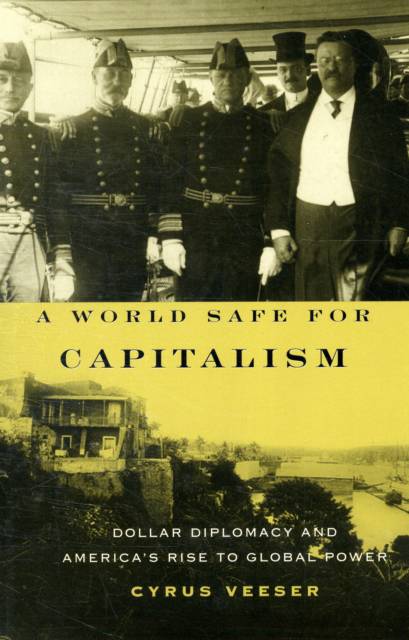
- Retrait gratuit dans votre magasin Club
- 7.000.000 titres dans notre catalogue
- Payer en toute sécurité
- Toujours un magasin près de chez vous
- Retrait gratuit dans votre magasin Club
- 7.000.0000 titres dans notre catalogue
- Payer en toute sécurité
- Toujours un magasin près de chez vous
54,45 €
+ 108 points
Description
This award-winning book provides a unique window on how America began to intervene in world affairs. In exploring what might be called the prehistory of Dollar Diplomacy, Cyrus Veeser brings together developments in New York, Washington, Santo Domingo, Brussels, and London. Theodore Roosevelt plays a leading role in the story as do State Department officials, Caribbean rulers, Democratic party leaders, bankers, economists, international lawyers, sugar planters, and European bondholders, among others.
The book recounts a little-known incident: the takeover by the Santo Domingo Improvement Company (SDIC) of the foreign debt, national railroad, and national bank of the Dominican Republic. The inevitable conflict between private interest and public policy led President Roosevelt to launch a sweeping new policy that became known as the Roosevelt corollary to the Monroe Doctrine. The corollary gave the U. S. the right to intervene anywhere in Latin American that "wrongdoing or impotence" (in T. R.'s words) threatened "civilized society." The "wrongdoer" in this case was the SDIC. Imposing government control over corporations was launched and became a hallmark of domestic policy. By proposing an economic remedy to a political problem, the book anticipates policies embodied in the Marshall Plan, the International Monetary Fund, and the World Bank.Spécifications
Parties prenantes
- Auteur(s) :
- Editeur:
Contenu
- Nombre de pages :
- 190
- Langue:
- Anglais
- Collection :
Caractéristiques
- EAN:
- 9780231235877
- Date de parution :
- 11-05-07
- Format:
- Livre broché
- Format numérique:
- Trade paperback (VS)
- Dimensions :
- 162 mm x 228 mm
- Poids :
- 381 g

Les avis
Nous publions uniquement les avis qui respectent les conditions requises. Consultez nos conditions pour les avis.






